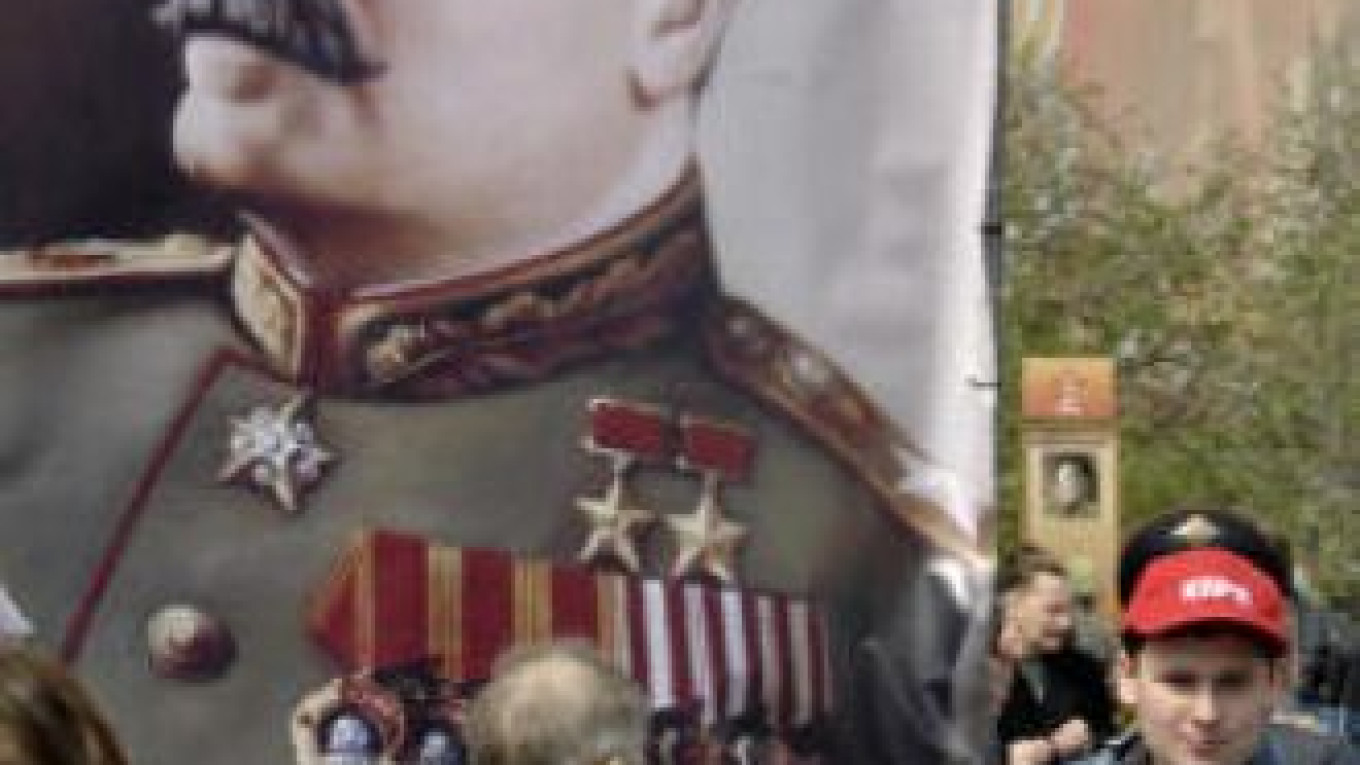A publishing house run by the Russian Orthodox Church has released a 2014 calendar devoted to Josef Stalin, unleashing a flurry of indignation among Russian bloggers and a discussion about the Church's ties to the former Soviet dictator.
The calendar, published by the Moscow-based patriarchal printing house of the Trinity Lavra of St. Sergius monastery, presents pictures of Stalin, accompanied by excerpts from his biography. The photographs show Stalin gradually ageing as the months roll on — from a young man on the January page to a gray-haired Soviet leader in December.
The calendar, on sale for 200 rubles ($6), "would be an excellent gift for veterans and history buffs," according to the website of Dostoinstvo publishing house.
Public outcry was prompted after a historian who focuses on Russian Orthodox Church studies mentioned the calendar and posted additional pictures from it on his LiveJournal social network blog on Tuesday.
On of the photographs posted by historian Mikhail Babkin showed the back page of the calendar, which carried a quote attributed to former French President Charles de Gaulle: "Stalin didn't walk away into the past, he dissolved into the future."
"The 'patriarchal-Stalinist' calendar once again demonstrates that the link between the Moscow Patriarchy of the Russian Orthodox Church and Stalin … has been and remains something close to a sacred one," Babkin said.
"The priests are suffering from Stockholm syndrome," a reader commented on the Ekho Moskvy radio website, in an apparent reference to the Church's affinity for its Soviet-era persecutors.
Stalin's relationship with the Orthodox Church was a complex and tumultuous one. Born in Georgia, Stalin attended a Georgian Orthodox seminary in his youth, but was expelled for reasons that are still debated by historians. Russians occasionally remark that his dismissal from the seminary, which stemmed his budding religious career, turned the course of Russia's history.
The Russian Orthodox Church was heavily persecuted in the initial years Soviet rule, with many of its temples being razed to the ground while others were turned into warehouses. Stalin presided over the destruction by dynamite of Moscow's Christ the Savior Cathedral, having picked its site for the Palace of the Soviets monument to socialism. The cathedral was rebuilt after the 1991 Soviet collapse.
But Stalin appeared to have had an about-face during World War II, supposedly cultivating closer ties with the Church in an apparent attempt to enlist its help in galvanizing Russians in the fight against the Nazis. After the war, he allowed the Church to operate under close government scrutiny.
The Russian Orthodox Church's connection "to Stalin, as its founder, is a most direct one," another reader commented. "Only a connection to God is missing."
"Insulting the memory of the millions of victims of that ghoul and of his damned regime is quite like the" Russian Orthodox Church, another said. "Snitching and hypocrisy thrive there."
"I have no words, this is already a total [expletive]," another commentator said. "They would go so far as to include that executioner of millions in their prayers. Complete insanity."
A Message from The Moscow Times:
Dear readers,
We are facing unprecedented challenges. Russia's Prosecutor General's Office has designated The Moscow Times as an "undesirable" organization, criminalizing our work and putting our staff at risk of prosecution. This follows our earlier unjust labeling as a "foreign agent."
These actions are direct attempts to silence independent journalism in Russia. The authorities claim our work "discredits the decisions of the Russian leadership." We see things differently: we strive to provide accurate, unbiased reporting on Russia.
We, the journalists of The Moscow Times, refuse to be silenced. But to continue our work, we need your help.
Your support, no matter how small, makes a world of difference. If you can, please support us monthly starting from just $2. It's quick to set up, and every contribution makes a significant impact.
By supporting The Moscow Times, you're defending open, independent journalism in the face of repression. Thank you for standing with us.
Remind me later.


